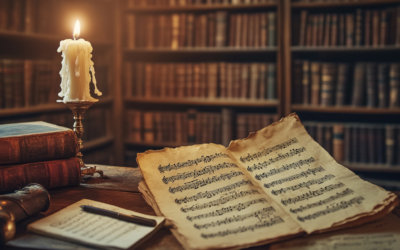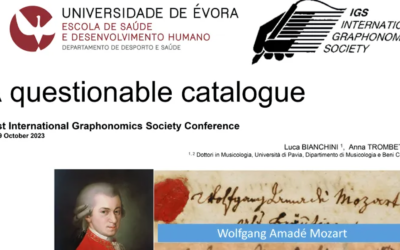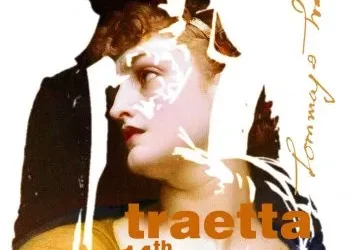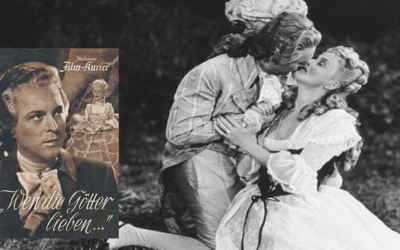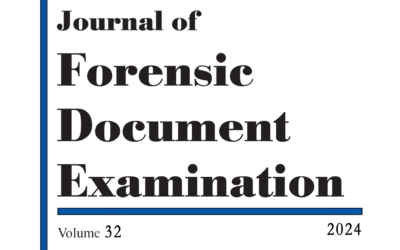The London Notebook
Mozart's Early Missteps and Misconceptions
The London Notebook exposes the limitations of young Mozart’s compositional skills and questions the myth of his early genius. His simplistic pieces, fraught with errors, reveal a child still grappling with fundamental musical concepts.
Mozart: The Fall of the Gods
This book offers a fresh and critical look at the life of Wolfgang Amadeus Mozart, challenging the myths that have surrounded him for centuries. We strip away the romanticised image of the “natural genius” and delve into the contradictions within Mozart’s extensive biographies. Backed by nearly 2,000 meticulously sourced citations, this work invites readers to explore a deeper, more complex understanding of Mozart. Perfect for those who wish to question the traditional narrative, this biography is a must-read for serious music lovers and historians.
“The celebrated music from this period may owe more to Leopold’s influence than to Wolfgang’s own abilities.”
Mozart: The Fall of the Gods
In September 1764, Leopold Mozart penned a letter to Lorenz Hagenauer from Chelsea, revealing that he had been gravely ill since early July. During this period, young Wolfgang Mozart, then only eight years old, was compelled to pause his concert tours and spend nearly two months in Chelsea. This hiatus led Wolfgang to compose a collection of forty-three simple keyboard pieces, recorded in a notebook Leopold titled ‘di Wolfgango Mozart à Londra’ (by Wolfgango Mozart in London).
These compositions are often dismissed as mere exercises for a child, lacking the complexity and sophistication associated with Mozart’s later works. Unlike Beethoven’s sketchbooks, which are revered for their insights into his compositional processes, Mozart’s London Notebook reveals the young composer’s experimental attempts at various forms and structures, but with little success. The period of inactivity due to Leopold’s illness and Wolfgang’s lack of keyboard access led him to create pieces that, while intended as exercises, are frequently criticised for their lack of harmonic sophistication and compositional maturity.
Critics like Abert have downplayed the significance of these works, suggesting they are nothing more than trivial exercises. Yet, these pieces provide valuable insight into the music that captivated audiences of the time. However, it is crucial to acknowledge that some of these pieces might not even be by Mozart himself; they could have been composed by others or inspired by the music Wolfgang heard during his travels. The truth is, many of the pieces in the London Notebook are rudimentary and exhibit common errors for a child of his age. They display parallel octaves, fifths, and dissonant sequences, and reveal a general lack of advanced compositional techniques such as counterpoint and complex harmony.
Moreover, the praise often attributed to Mozart’s early works is questionable. The celebrated music from this period may owe more to Leopold’s influence and contributions than to Wolfgang’s own abilities. The claim that Mozart had achieved significant compositional milestones at such a young age is contradicted by the evidence presented in this notebook. It suggests that the acclaim for Mozart’s early works may be misplaced and more accurately reflects Leopold’s organisational and compositional role.
The London Notebook’s simplistic pieces and frequent errors highlight the limitations of a young Mozart who was still developing his musical skills. Claims that Mozart could have composed complex fugues or improvised sophisticated music with Johann Christian Bach are dubious at best. The reality of these early compositions demonstrates that young Wolfgang’s abilities were far from the prodigious genius later attributed to him.
In the end, the London Notebook offers a sobering look at Mozart’s early compositions, revealing a child artist grappling with musical concepts that would only later be refined. The current critical editions that attempt to correct these youthful mistakes often replace Mozart’s original intent with more polished versions, thus obscuring the true nature of his early work.
You May Also Like
The Enigma of Mozart’s Symphony K.73
The Symphony in C Major K.73 has long puzzled Mozart scholars. Touted as a youthful work of prodigious talent, its origins are murky at best. The title “Symphony,” inscribed on the first page of the autograph, is devoid of the composer’s name, casting immediate doubt on its attribution to Wolfgang Amadeus Mozart. Was this truly his work, or is the Symphony yet another victim of overzealous attribution?
Mozart’s Thematic Catalogue Exposed as a Forgery
A groundbreaking forensic analysis reveals that Mozart’s thematic catalogue, long thought to be his own work, is a posthumous forgery. This discovery, detailed in Mozart: The Construction of a Genius, turns centuries of Mozart scholarship on its head, demanding a re-examination of his legacy.
Bologna Connections
Quirino Gasparini’s rediscovered Mitridate aria takes centre stage in Bern and Basel, shedding light on Mozart’s reliance on this forgotten composer.
International Traetta Award
We are thrilled to announce that the 14th International Traetta Award has been bestowed upon Anna Trombetta and Luca Bianchini. This prestigious recognition honours their outstanding dedication to musicological research on primary sources of the European musical repertoire, offering significant contributions to reshaping the historiography of 18th-century music.
A Legacy Rewritten by the Shadows of History
Mozart’s image, often regarded as a universal symbol of musical genius, was heavily manipulated by the Nazi regime, a fact largely ignored in post-war efforts to “denazify” German culture. From propaganda-driven films to anti-Semitic narratives, Mozart’s legacy is far more complex and troubling than we are often led to believe.
Unveiling the Truth Behind Mozart’s Thematic Catalogue
Anna Trombetta, Professor Martin W. B. Jarvis from Charles Darwin University, and Luca Bianchini, have published a peer-reviewed article titled Unveiling a New Sophisticated Ink Analysis Technique, and Digital Image Processing: A Forensic Examination of Mozart’s Thematic Catalogue. This research, which underwent an extensive double-blind peer review, has appeared in a journal that serves as a global reference point for forensic document examiners and court specialists.


